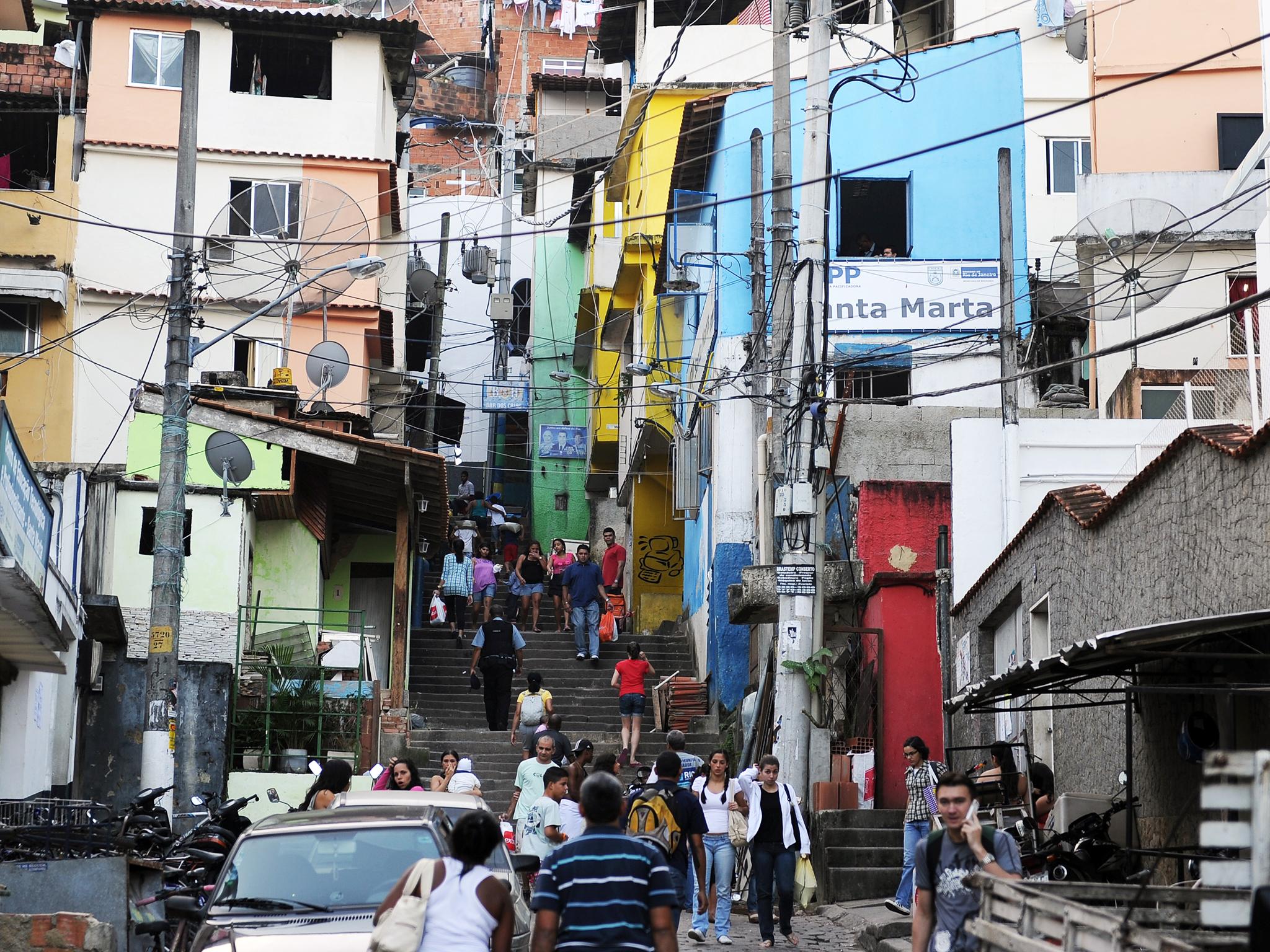The Olympics won’t help Rio – London is still reeling from the damage four years on
Four years later, the Olympic legacy in London has left housing options in the borough worse than their pre-2012 levels

As the Olympic buildings were being erected in Rio, large banners hung over the scaffolding, partially obscuring the construction sites. Superimposed over the mocked up scenes of the Olympic village being enjoyed by tourists and residents alike was the message: “The Olympics bring more than just the Olympics”.
The International Olympic committee has always sought to bring development opportunities to host cities. President Jacques Rogge said that each game “creates a unique set of environmental, social and economic legacies that can change a community, a region, and a nation forever.”
And change surely has already come to Rio. According to a report released by the Popular Committee on the World Cup and Olympics and translated by Al Jazeera, “at least 4,120 families have been removed and 2,486 remain under removal by reasons directly or indirectly related to the Olympic Project”. According to another report, that figure could be as high as 19,000 families.
These mass evictions are not unique to the Rio games alone. In 2012, London faced a similar set of issues. During the games, the housing and homelessness charity Shelter reported an increase in the number of families being evicted by rogue landlords wanting to cash in on the opportunity to rent out their properties to visitors at an inflated price. In some cases, properties were being rented out at 20 times their original value.
Four years on and the Olympic legacy has left housing options in the borough worse than their pre-2012 levels. One location in particular tells the sorry tale of post-games gentrification. In preparation for the building of the Athletes’ Village, 425 tenants from the Clays Lane Housing co-operative were relocated by the London Development Agency. Back in 2007, a one-room flat in the co-op stood at £200pcm; these days, one-bedroom flats in the Athletes’ Village, now re-purposed as the “East Village”, cost an average of £1580pcm to rent. That’s eight times the location’s original value over a four-year period.
The East Village development promised that half of the 2,818 homes would remain “affordable”. Similarly, the yet-to-be-completed Chobham Manor and East Wick developments have pledged that between 29 per cent and 31 per cent of their properties would be “affordable”. But even if we are to believe these promises, “affordable” rent refers, in this context, to 80 per cent of market rate. According to the latest figures from HomeLet, the average London rent is £1,543 – so that makes the “affordable” monthly rent on a one-bed flat £1,234pcm.
This is a distinctly unaffordable sum for families living in the borough of Newham where the housing estate is located. According to Trust for London, 44 per cent of families in the borough receive working tax credits. The borough has the highest rate of residents in low-paid work in the capital. It also has the highest rate of overcrowding and households in temporary accommodation out of the 32 London boroughs.
In 2015, out of all Newham residents in temporary accommodation – families who are waiting for their homelessness applications to be processed before they can be provided with council housing – 1,267 of them ended up being forced to live outside of the borough. High housing costs mean that temporary accommodation options within the borough are limited, forcing families to move outside of borough boundaries. The effect this can have on communities is devastating.
When the athletes have returned to their home countries to a hero’s welcome and the crowds have dispersed, communities are left to live with the legacy of the Olympic Games. In London, this meant high investment in the areas’ infrastructure, facilities and new housing projects. But it also meant an irreversible increase in property prices and displacement. The question is for the people of Rio: will these consequences be worth it? Or, like in London, will they leave fractured communities, many of whom wish the games had never visited their city at all?

Join our commenting forum
Join thought-provoking conversations, follow other Independent readers and see their replies